Understanding anxiety is the first step in getting the care you need.
Feel better in 12 weeks with a personalized treatment plan including FDA-approved Psychiatry & evidence-based Therapy.
Start With A Free Assessment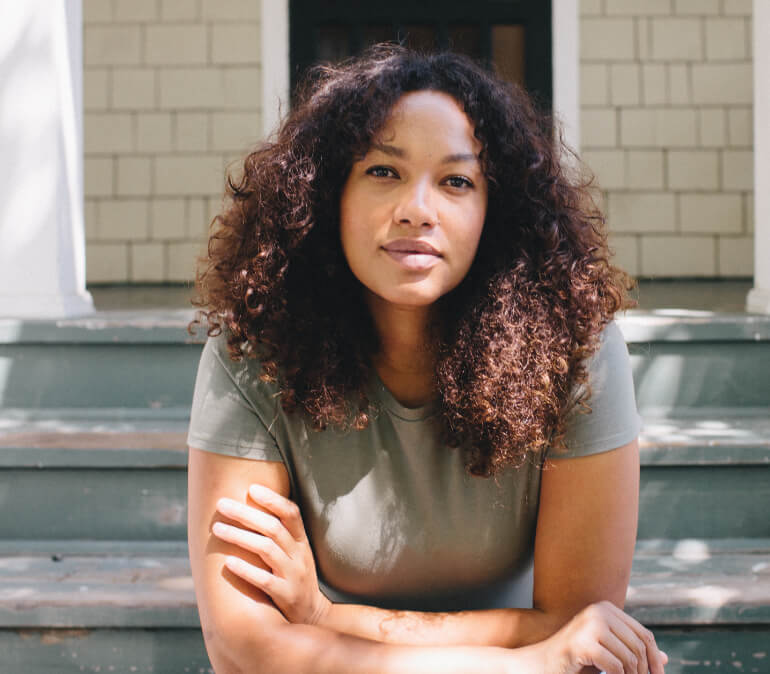

It’s normal to have anxious days. However, when those days turn into longer periods of time, and your anxiety is persistent, seemingly uncontrollable, overwhelming, and interferes with daily activities–you may have an anxiety disorder. But don’t worry, anxiety disorders are the most common mental health conditions in the U.S., affecting 40 million Americans, and they are highly treatable.
I have struggled with anxiety for several years. I didn’t think anything would help and was ashamed and to busy to take the time to speak to a doctor in person. The doctor was judgement-free, simply listened, and explained the options. About a month in and I can feel a total difference I feel the old me coming back, and am able to handle my anxiety much better. I have found that instead of my anxiety controlling me I am now the one in control.


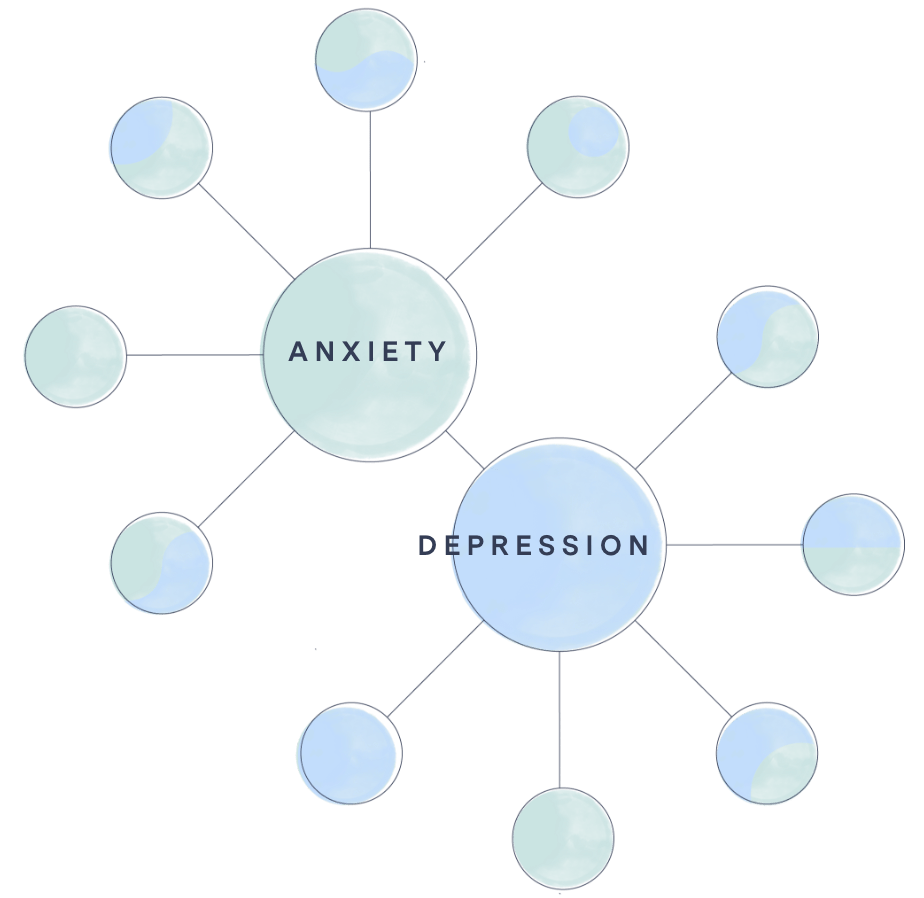

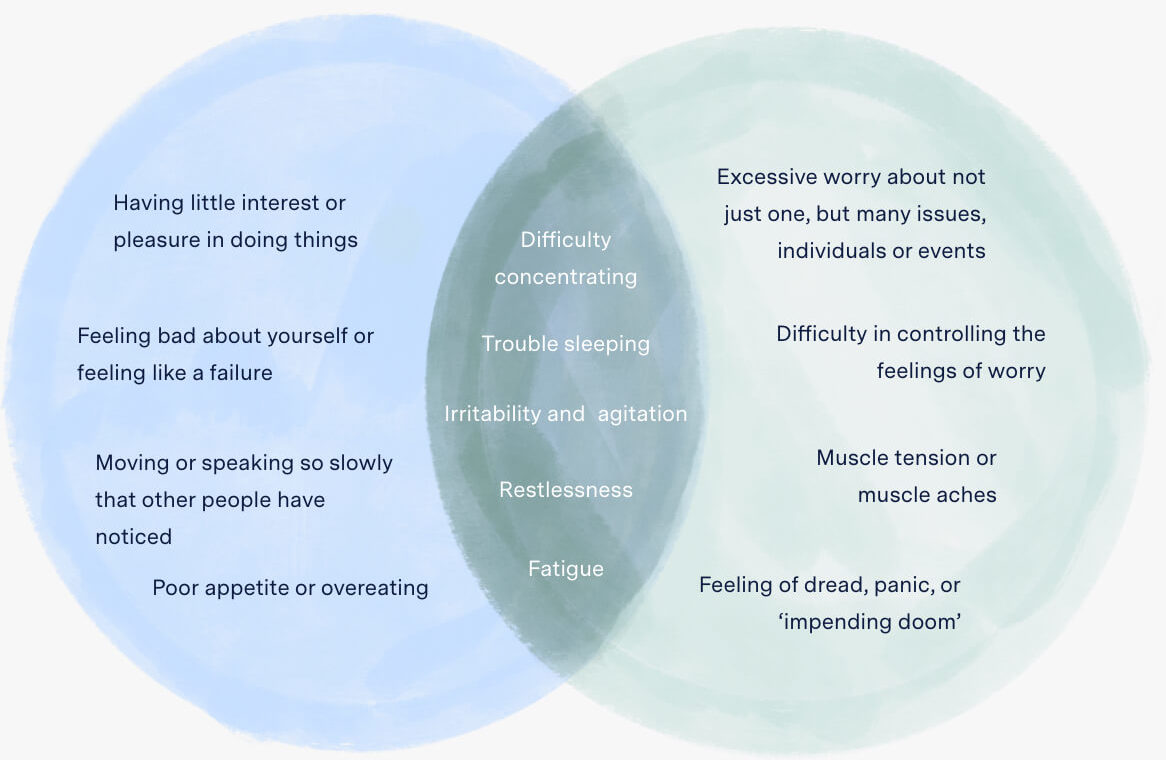

Anxiety is diagnosed by a psychiatric provider looking for the presence of signs and symptoms associated with anxiety, including the mix and severity of symptoms, context, duration, and life impact. The provider will also want to know about your medical history and family history, as well as current medications you are taking.
Learn More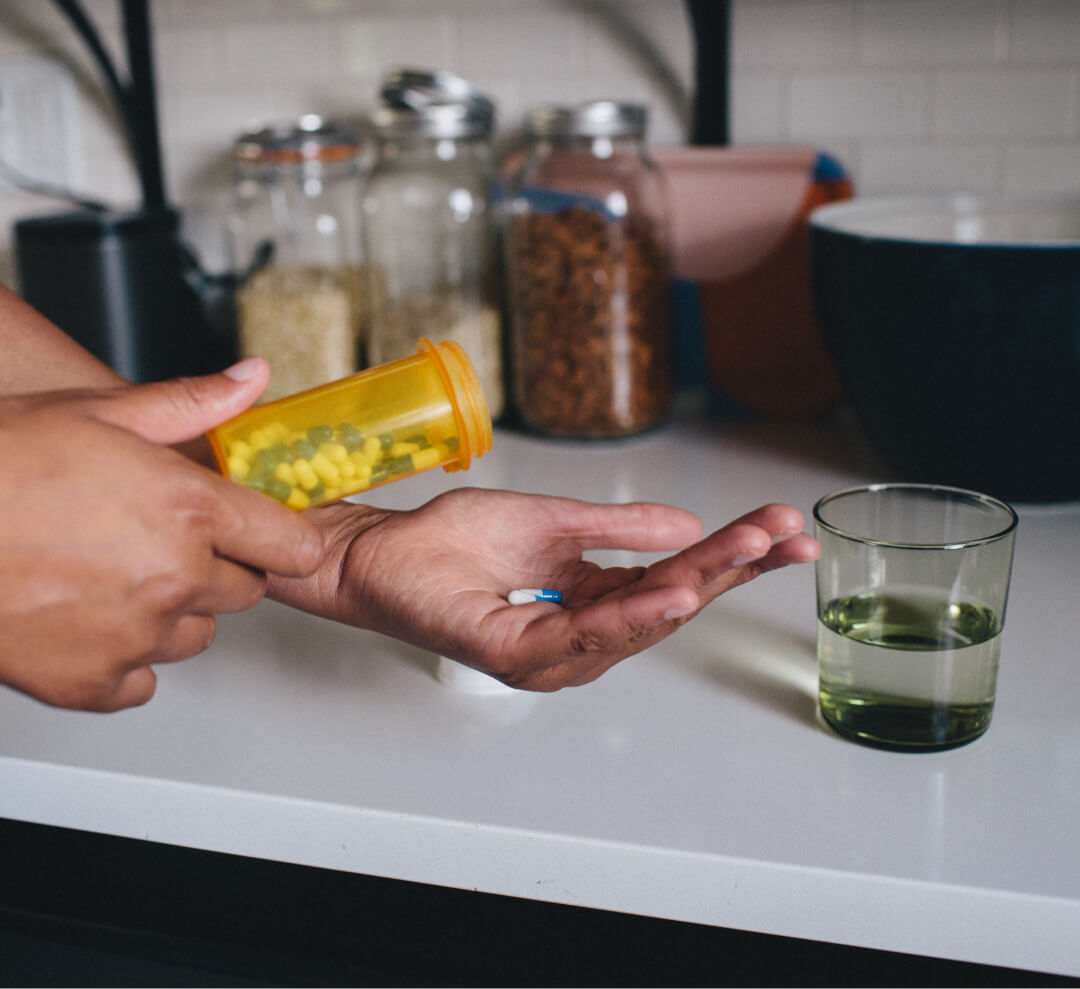
Because there are many forms of anxiety and each individual is unique, getting the best result requires matching each person to the right medication, then fine-tuning treatment based on individual response. At Brightside, we pinpoint your FDA-approved match by leveraging your data points and decades of clinical research.
To get the best results, it’s important to measure progress during treatment–this is known as measurement-based care. This allows you and your Provider to make informed decisions for any adjustment in your treatment. It’s common to adjust your medication when first starting antidepressants to make sure its right for you.
Benztropine / Cogentin
Buspirone / Buspar
Clomipramine / Anafranil
Clonidine / Catapres
Topiramate / Topamax
DXM/BUP / Auvelity
Venlafaxine / Effexor
Plus more
At Brightside, we use only evidence-based approaches such as Cognitive Behavioral Therapy (CBT) to help you build skills to more effectively help you break the negative cycles of anxiety.
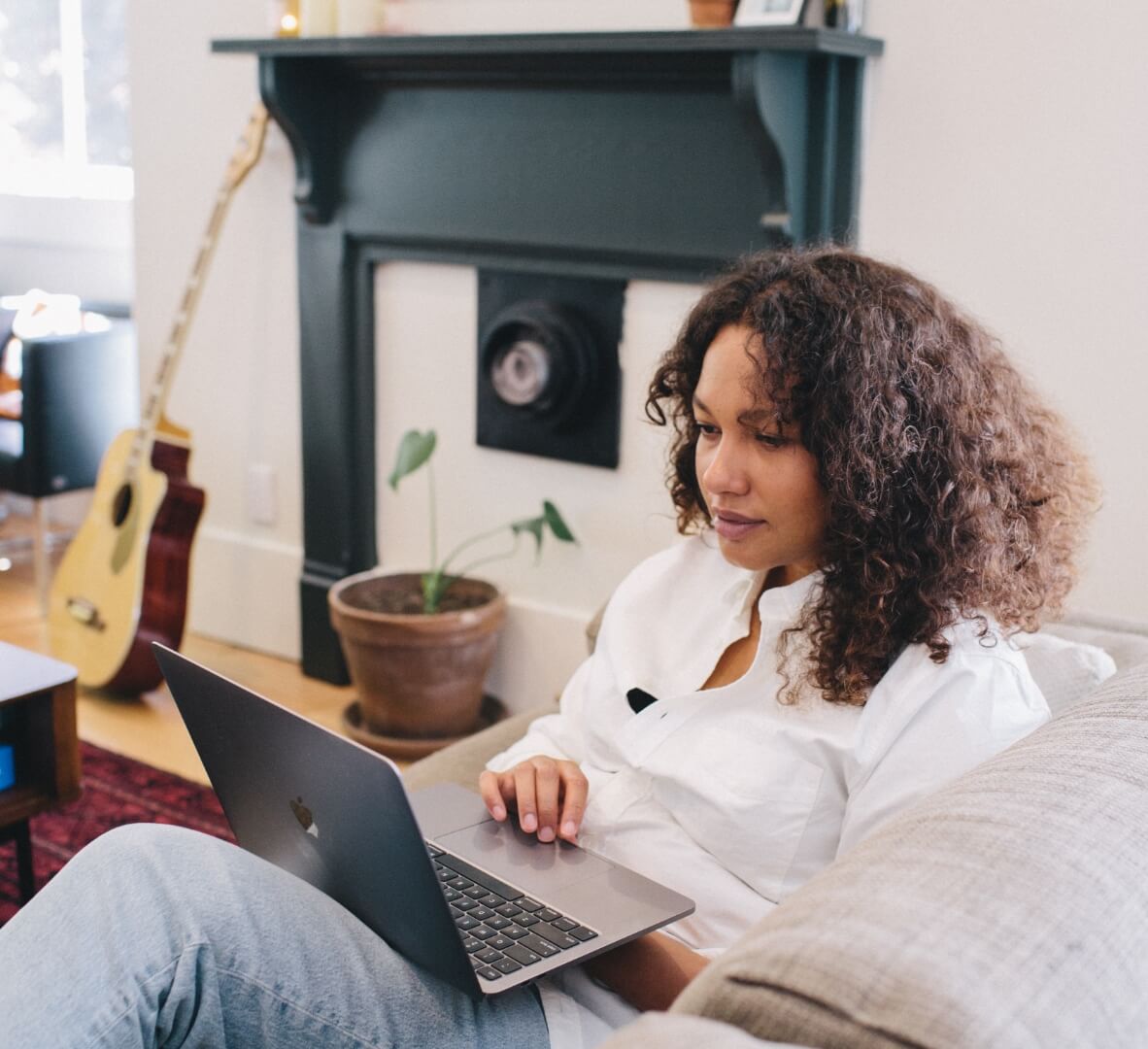
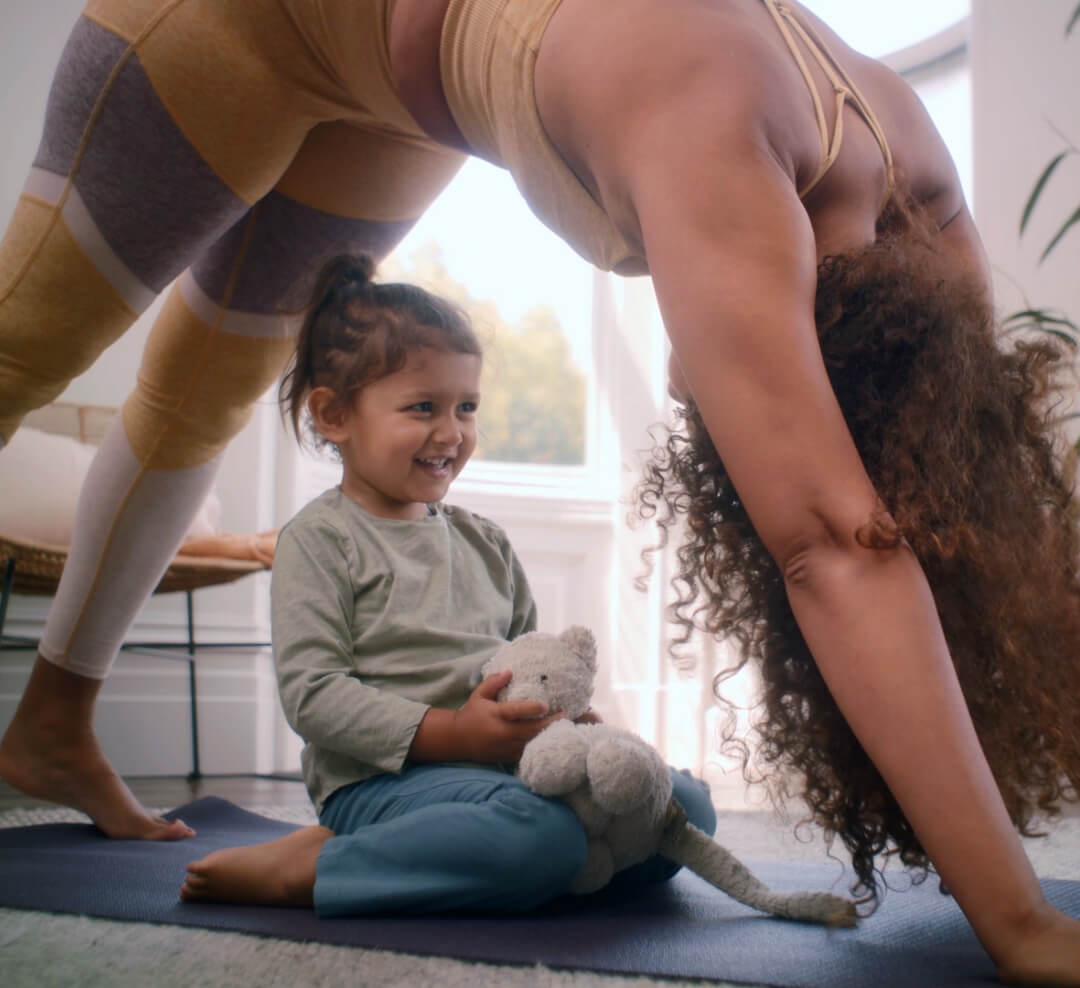

Whether you choose Psychiatry, Therapy, or both, our memberships include expert online care designed to help you feel better, faster.
Get access to:
We offer affordable care for everyone and accept most major insurance, including Medicare and Medicaid.







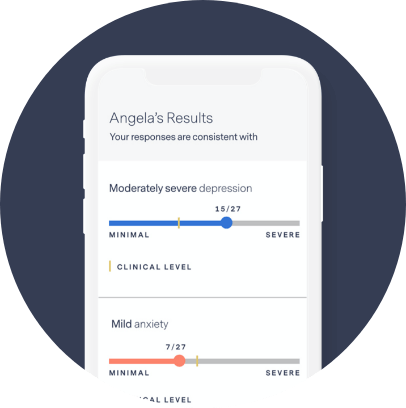
Start with a clinically-proven set of questions to shed light on how you’re feeling. We’ll help you understand your symptoms, then recommend the best treatment plan for you–including Psychiatry, Therapy, or both.

Get matched with an expert provider for an online video consultation. Share how you’re feeling and then decide on next steps–together.
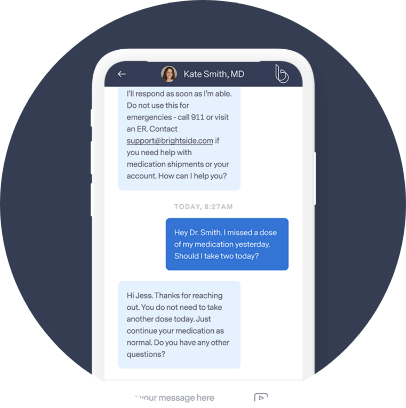
Stay in touch with your providers with unlimited messaging and video visits.
Then, measure your progress with regular check-ins to monitor your symptoms and make adjustments until your treatment is right for you.